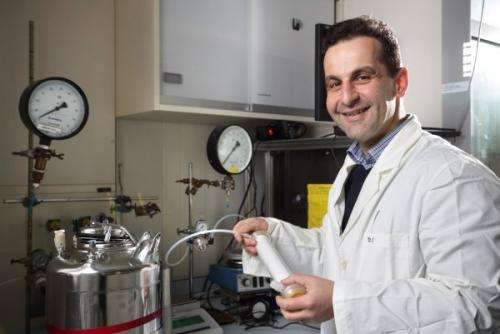A new generation of dialysis devices

Kidney dialysis is a heavy treatment to undergo and has many side effects. Scientist Prof Dimitrios Stamatialis is starting a new research project into the development of new dialysis membranes for longer and better blood detoxification. The project belongs to The Life Science and Health (LSH) Impuls program and is performed in collaboration between industry, the Dutch Kidney Foundation, Maastricht University and the Maastricht University Medical Center (UMC+). Prof Stamatialis is affiliated with the MIRA research institute of the University of Twente.
Hemodialysis is by far the most common form of dialysis undergone by kidney patients who are dependent on it. This involves purifying the blood outside of the patient's body using an artificial kidney. The artificial kidney is housed in a large dialysis machine. Treatment usually takes place two or three times a week and each session lasts around three to five hours. While dialysis is a lifesaving treatment, it has a significant effect on the kidney patient's body and life. Since the treatment is not continuous, waste products accumulate between dialysis sessions and the patient's fluid balance fluctuates significantly. This means that kidney patients feel exhausted more quickly and are often nauseous. Headaches and itching are also common complaints.
Longer and better
Prof Dimitrios Stamatialis is starting research into the development of a new artificial kidney device based on new blood-compatible biomaterials combined with adsorbent particles for toxin removal. These filters can be used for longer periods of time and are expected to remove a broad range of toxins. The filters currently used generally remove only small uremic toxins.
"If patients are able to undergo dialysis more frequently and / or for longer periods of time, their fluid balance is better," explains Prof Stamatialis. "The waste products in the blood do not accumulate between treatments and this means that patients feel better. I am also focusing on the development of better filters."
Lightweight portable device
Longer, better and smaller are the keywords of Stamatialis' research. Prof Stamatialis: "My long term ambition is the development of a lightweight portable device which patients can use for a longer period of time. In this new project, we will make significant progress in this direction. We will develop the new devices and test them on small animals."















